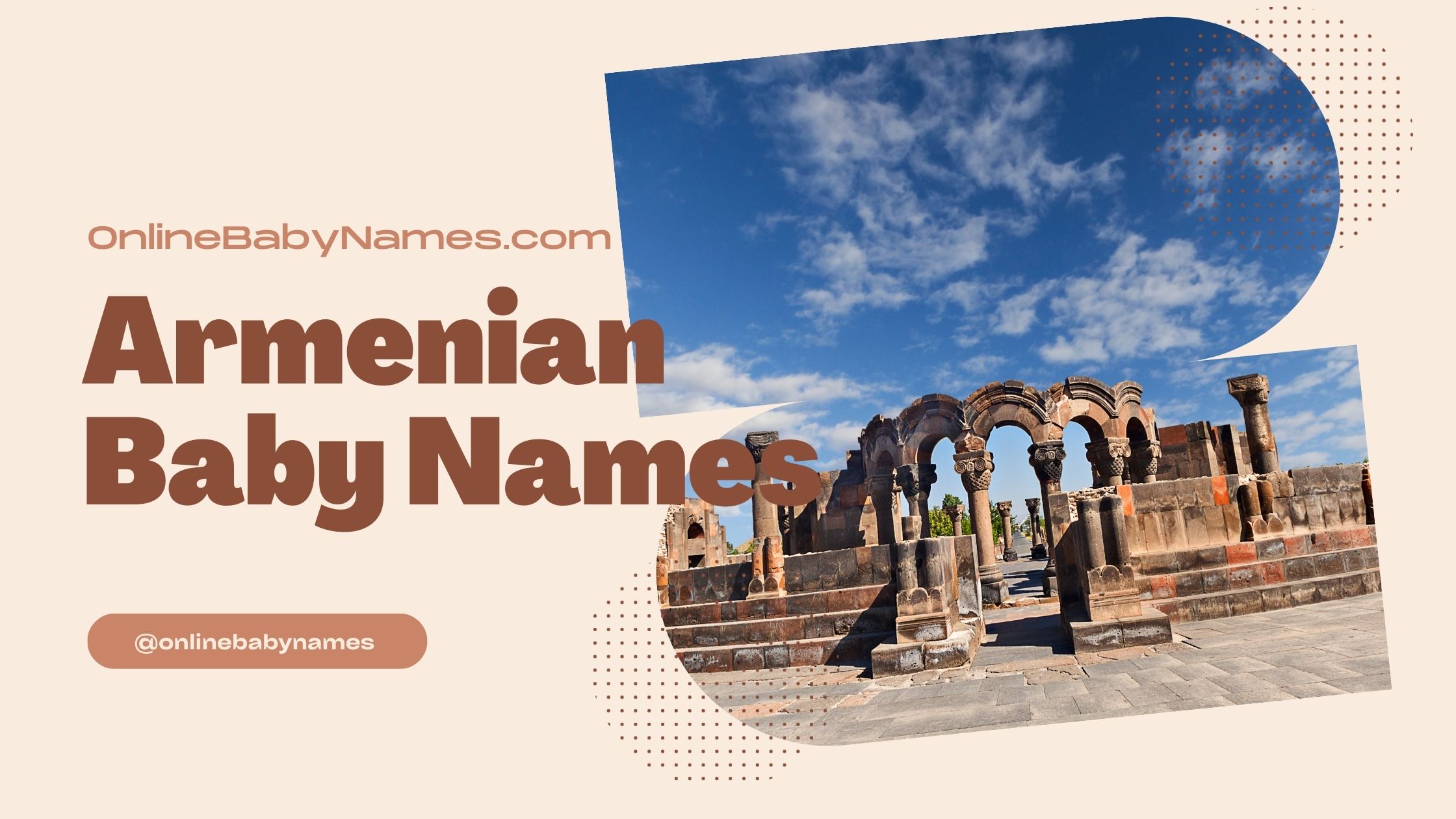
As a parent-to-be, finding the perfect name for your little one can be both exciting and challenging. With an abundance of beautiful and meaningful options available, Arabic baby names offer a world of possibility. The Arabic language, steeped in rich history and culture, is known for its eloquent and poetic names that convey deep meaning and significance.
In many Arabic-speaking cultures, names bear a strong connection to a person’s essence and identity. Choosing a name that embodies virtues or holds a powerful symbolism can serve as a guiding principle for your child’s future. So, it’s no wonder that parents gravitate towards Arabic names for their timeless appeal, significance, and depth.
In this article, I’ll be sharing a selection of captivating Arabic baby names for your consideration, discussing their meanings and cultural significance. Whether you have roots in Arabic-speaking regions or are simply fascinated by this enchanting language, you’re sure to discover the perfect name to welcome your precious little one into the world.
The Rich History of Arabic Baby Names
Arabic baby names have a rich history, stemming from the ancient Arab civilization with deep roots in culture, religion, and tradition. These names are meaningful and often carry a story or moral message behind them, making them a popular choice for parents across the globe. There are a few key aspects that make Arabic baby names unique:
- Connection to religion: Arabic is the language of Islam, and many Arabic names are inspired by the teachings and concepts found in the Quran. For Muslim parents, choosing an Arabic name for their child can be both a cultural and religious decision.
- Influence of language: Arabic is a Semitic language known for its fluidity and beauty. Names with Arabic origins often have a melodic quality and are revered for their poetic nature.
- Potent meanings: Across the Arab world, names are often chosen based on their meanings, and Arabic baby names are no exception. Arabic names often carry positive or powerful messages emphasizing virtues such as patience, wisdom, and courage.
Over time, various trends and influences affected the popularity of certain Arabic baby names. Some of these trends include:
- Pre-Islamic Period: Before the advent of Islam, Arabian cultures had their unique naming traditions. Popular names during this period often had connections to nature, tribal ancestry, and divine figures associated with Arabian polytheism.
- Islamic Era: With the rise of Islam, Arabic names shifted towards more religious themes. Many baby names during this period were inspired by the teachings of the Quran, figures in Islamic history, and names of the Prophet Muhammad and his family members.
- Modern Era: In contemporary times, Arabic baby names continue to evolve. While many parents still choose traditional names, there is increased diversity with the adoption of Persian, Turkish, and Western names.
To better understand the diversity of Arabic baby names, let’s explore a few popular categories with examples:
- Quranic names: Many parents choose names from the Quran, Islam’s holy book. Examples include:
- Fatima: The daughter of the Prophet Muhammad, regarded as a noble and virtuous woman.
- Yusuf: A prophet mentioned in the Quran, known for his exemplary character and wisdom.
- Virtue names: Names that convey a specific moral quality or virtue. Examples include:
- Sabir: Meaning “patient” or “enduring,” reflecting qualities of strength and resilience.
- Nadia: Meaning “gentle” or “tender,” often associated with kindness and compassion.
- Nature-based names: Names inspired by natural elements and symbolic meanings. Examples include:
- Zahra: Meaning “flower” or “blossom,” symbolizing femininity and beauty.
- Asif: Meaning “a strong wind” or “storm,” representing power and determination.
When selecting an Arabic baby name, it’s important to consider its meaning and cultural significance. With a rich history and an array of meaningful choices, Arabic baby names continue to hold a special place in the hearts of parents and children alike.
Understanding the Meaning Behind Arabic Names
As a blogger and researcher, I’ve always found it fascinating how names carry cultural and symbolic meaning. In Arabic baby names, these meanings are often just as important as the name’s aesthetic appeal. In this section, let’s dive into the various aspects of Arabic names and their significance.
Arabic names, like those in most languages, are usually derived from a root word. This root word holds a specific meaning, which then informs the meaning of the name itself. In fact, many Arabic names carry an inherent emotional or spiritual sentiment, making them rich in symbolism. For example, the name Ahmed, commonly associated with prophets and leaders, means “highly praised” or “one who constantly thanks God.”
Another important aspect of Arabic baby names is their connection to the language itself. Arabic is a beautiful and poetic language, with words that often hold multiple layers of meaning. As such, a name can have several nuanced meanings. To illustrate this, let’s look at the name Fatima: it means “captivating” or “daughter,” but it’s also related to the word “فطم” (fatm) which means to “wean” or “cut off.” These meanings all contribute to the layered significance of the name.
Religion also plays a big role in Arabic naming conventions. Many names are inspired by or directly taken from the Quran and Islamic traditions. Some examples include:
- Mohammad: derived from the root word “حَمِدَ” (hamida) meaning “to praise,” Mohammad is the most common Arabic name as it refers to the Prophet Mohammad.
- Aisha: a popular name for girls, Aisha was the name of the Prophet Mohammad’s wife and means “alive” or “living.”
- Ali: meaning “noble” or “exalted,” Ali was the name of the Prophet Mohammad’s cousin and son-in-law.
Arabic baby names are also often gender-specific with unique linguistic features. For example, many male names end in the suffix “-ullah,” which literally means “of God.” These names (e.g., Abdullah, Mansoorullah) highlight the close connection between the individual and the divine. Conversely, feminine names often end in the suffix “-a” or “-ah” (e.g., Leila, Aamina), which can indicate gentleness and grace.
When choosing an Arabic baby name, families consider the significance and symbolism of the name, how it relates to their faith and values, and its aesthetic appeal when pronounced and written.
By understanding the meaning behind Arabic names, we can appreciate the richness of the Arabic language and the cultural and religious influences that shape these unique and beautiful names.
Arabic Names inspired by Nature
Arabic baby names inspired by nature are incredibly diverse and meaningful. They offer an opportunity to connect with the beauty and power of the natural world, celebrate the rich history of the Arabic language and culture, and choose a unique name for your little one. In this section, I’ll explore some popular Arabic baby names that find their roots in nature.
Flora and Fauna
Arabic names inspired by flora and fauna often signify strength, beauty, growth, and purity. These names allow parents to express their hopes and aspirations for their children while also paying tribute to the wonder of the natural world. Some popular examples include:
- Asad (أسَد) meaning “lion”
- Dara (دارا) meaning “pearl”
- Yasamin (یاسمین) meaning “jasmine”
- Zahra (زهراء) meaning “flower”
Elemental and Celestial Forces
Names that draw inspiration from elemental and celestial forces often evoke images of power, grandeur, and awe. Arabic baby names that capture the majesty of such forces can help foster a sense of pride and confidence in your child. Some popular examples are:
- Ayman (أيمن) meaning “blessed, auspicious” which also refers to the right side which in Arabic beliefs is considered the blessed side
- Rania (رانيا) meaning “gazing upon” or “queen”
- Sameh (سامح) meaning “forgiver” or “one who pardons others”
- Nur (نور) meaning “light”
Landscapes and Places
Names derived from landscapes and places carry a strong sense of heritage, belonging, and identity. These names help tie your child to a specific location, culture, or history, providing them with a sense of connection and grounding. Some notable examples include:
- Jabal (جبل) meaning “mountain”
- Rayyan (ريان) meaning “lush, verdant” and also the name of one of the gates of paradise in Islamic tradition
- Wadi (وادي) meaning “valley” or “river valley”
- Lina (لينا) meaning “palm tree” or “tender”
Overall, Arabic baby names inspired by nature offer a wealth of meaning and beauty that can help establish a strong connection between your child and the world around them. By choosing a name with natural roots, you’ll not only pay homage to the beauty and diversity of the Arabic language but also provide your child with a unique and meaningful name they can be proud of.
Arabic Names Related to Knowledge and Wisdom
When it comes to choosing an Arabic baby name that signifies knowledge and wisdom, I’m here to help you explore some of the top choices. Arabic culture is rich in history and tradition, and many parents want to pass on these values by selecting a name with profound meaning.
Names for Boys:
- Hakim: This name translates to “wise” and is often associated with people who possess deep insight and understanding.
- Faisal: With roots in Arabic, Faisal means “decisive” or “resolute”. This name is perfect for a baby who’ll grow up to have a strong intellect and make wise decisions.
- Idris: A name with multiple meanings, Idris can mean both “to instruct” and “to study”. It’s an ideal name for those who wish to raise a knowledgeable and curious child.
Names for Girls:
- Aisha: This popular Arabic name signifies “lively” or “life”. It’s often associated with wisdom because it’s believed that a wise person leads a vibrant and fulfilling life.
- Sophia: While it has Greek origins, Sophia is a common name among various cultures, including Arabic. It means “wisdom” and is perfect for parents who want a name with direct association to knowledge and intelligence.
- Hikma: Hikma, which means “wisdom” in Arabic, is another exceptional choice for a baby girl’s name that signifies intellect and foresight.
In addition to these options, here’s a list of unisex names holding meanings connected to knowledge and wisdom:
- Noor: This name means “light” in Arabic and is often associated with enlightenment and knowledge.
- Aalim: Meaning “scholar” or “knowledgeable person”, Aalim represents a baby who’ll grow into an educated individual.
- Basir: This Arabic name conveys the meaning of “one with insight” and can be a fitting choice for parents who want their child to be a visionary.
It’s essential to thoughtfully choose an Arabic baby name that represents the qualities, values, and characteristics you want your child to possess throughout their life. Each of these names holds significance in the realm of knowledge and wisdom, making them an excellent starting point for your search. With such a wide selection, I’m confident that you’ll find the perfect fit.
Popular Arabic Names for Girls
Arabic baby names have a timeless appeal, as they often carry deep historical roots and beautiful meanings. It’s no wonder these names are so popular among parents searching for something unique and significant for their newborn daughters. In this section, I’ll be looking at some of the most popular Arabic names for girls and the meanings behind them.
Aisha – This name is an all-time favorite, meaning “living” or “lively.” It’s known for its association with the Prophet Muhammad’s wife and has a strong connection to the early days of Islam.
Zara – Derived from the name Zahra, meaning “blooming flower” or “shining,” this name has become quite popular in recent years. The name has a graceful elegance that many parents appreciate.
Nadia – With its roots in the Arabic word “nada,” meaning “dew” or “generosity,” Nadia is a popular choice for parents seeking a name that represents strength and compassion. It’s considered a timeless classic among Arabic baby names.
Farida – Foster a unique identity for your daughter with the name Farida, which means “precious” or “unique” in Arabic. It’s an excellent choice for those who desire a name that stands out in the crowd.
Amira – Meaning “princess,” Amira is a name that can carry with it a sense of royalty and grace. It’s a popular choice in Middle Eastern and North African countries.
Jasmine – Inspired by the beautiful and fragrant jasmine flower, this name has captured the hearts of many parents due to its association with the Disney princess from Aladdin. Its popularity transcends cultural boundaries, making it a well-loved choice among Arabic baby names.
To give you a better idea of the popularity of these names, here’s a quick overview in a markdown table:
| Name | Meaning | Popularity |
|---|---|---|
| Aisha | Living, Lively | High |
| Zara | Blooming, Shining | High |
| Nadia | Dew, Generosity | High |
| Farida | Precious, Unique | Moderate |
| Amira | Princess | Moderate |
| Jasmine | Fragrant Flower | High |
In addition to these names, there are many other Arabic baby names for girls that parents adore. Each name comes with its own cultural significance and beautiful meaning:
- Laila: Night, or beauty of the night
- Noor: Divine light, radiance
- Fatima: Captivating, daughter of the Prophet Muhammad
- Zainab: Fragrant flower or graceful tree
- Malak: Angel, divine messenger
It’s important to remember that every name has unique qualities that make it special. Finding the perfect Arabic baby name for your little girl is an exciting journey, and these popular options offer a starting point for your search.
Popular Arabic Names for Boys
When it comes to Arabic baby names, there’s an abundance of meaningful and beautiful options for parents to choose from. Many Arabic names come with deep cultural and religious significance, making them even more special for those looking to hold onto their traditions. In this section, I’ll introduce you to some popular Arabic names for boys and provide a bit of background on their meanings.
Mohammed remains one of the most common Arabic names for boys. It was the name of the Prophet Mohammed, the founder of Islam, and holds great importance in the Muslim world. Its meaning translates to “praiseworthy” or “commendable,” reflecting the traits and values parents hope their sons will embody. Other variations of this name include Muhammad and Mohamed.
Another popular choice is Ali, the name of the Prophet Mohammed’s cousin and son-in-law. It’s a simple and strong name, which means “noble” or “exalted.” Ali is also the fourth caliph of Islam, making it an esteemed name within the faith.
Other widely used Arabic names for boys include:
- Ahmad: Meaning “more commendable” or “more praiseworthy,” this name is often given to boys in conjunction with the name Mohammed.
- Ibrahim: The Arabic version of the biblical name Abraham, its meaning is “father of many.”
- Yusuf: This name is the Arabic equivalent of Joseph, with its meaning translating to “Allah increases in piety and power.”
- Omar: Meaning “long-lived” or “flourishing,” this name has a rich history, as Omar was one of the most famous caliphs in Islamic history.
For parents seeking more modern options, the following names have become increasingly popular in recent years:
- Rayan: With a meaning related to the paradise gates, this name paints a beautiful image for parents looking for an ethereal choice.
- Aiden: Meaning “little fire,” this name carries a sense of strength and energy.
- Zayn: This trendy name means “beauty” or “grace” and has grown in popularity due in part to the fame of singer Zayn Malik.
| Name | Meaning | Name | Meaning |
|---|---|---|---|
| Mohammed | Praiseworthy, commendable | Rayan | Paradise gates |
| Ali | Noble, exalted | Aiden | Little fire |
| Ahmad | More commendable, more praiseworthy | Zayn | Beauty, grace |
| Ibrahim | Father of many | ||
| Yusuf | Allah increases in piety, power | ||
| Omar | Long-lived, flourishing |
Whether you’re leaning towards a traditional Arabic name or a more contemporary choice, there’s no shortage of beautiful and meaningful names for your baby boy. Consider the meanings behind each name and how they might inspire your child as he grows into the person you know he’ll become.
Unisex Arabic Baby Names
When it comes to naming a baby, choosing a unique and meaningful name is important. Arabic baby names often carry significant meanings that reflect the characteristics, virtues, and aspirations parents hope for their children. While many Arabic names are gender-specific, there are also quite a few that can be used for both boys and girls. Let’s explore some popular unisex Arabic baby names and their meanings:
- Nur (نور): Meaning “light” in Arabic, Nur is often related to the concept of enlightenment and knowledge.
- Samir (سمير) / Samira (سميرة): These names mean “companion in evening conversation” and can be used for both boys (Samir) and girls (Samira).
- Rasha (رشا): A lovely name with the meaning “young gazelle,” symbolizing grace and beauty.
- Ihsan (إحسان): This unisex name means “to do good” or “charity,” reflecting a high moral character and noble intention.
Within the Arabic-speaking world, there are regional variations in naming practices. Some names are more common in certain countries than others. Here’s a list of unisex Arabic names popular in various regions:
| Country | Name | Meaning |
|---|---|---|
| Egypt | Hadi (هادي) | “Guide” |
| Saudi Arabia | Amani (أمانى) | “Wishes” or “Aspirations” |
| Lebanon | Rami (رامي) | “Archer” |
| Morocco | Yanis (يانيس) | “Heartening” or “Gifting” |
It’s important to remember that some unisex names can have slightly different meanings when given to boys or girls. For instance, a name like Riham (ريهام) can mean “gentle rain” for a girl, while implying “leniency” or “compassion” for a boy.
Moreover, many Arabic names can be further customized by adding prefixes or suffixes to create unique and personalized names. Examples of such combinations include:
- Abdul (عبد ال) + Latif (لطيف) = Abdul-Latif (عبد اللطيف), meaning “servant of the kind [God]”.
- Ali (علي) + yah (ياه) = Aliyah (عالية), meaning “noble” or “exalted”.
In summary, Arabic baby names offer a rich selection of meaningful and versatile options for parents in search of a unisex name. From names symbolizing virtues and aspirations to those reflecting regional and cultural heritage, the possibilities are endless. So, whether you’re opting for a classic choice like Nur or experimenting with modern combinations, rest assured that you’re choosing a name with layers of significance and tradition.
Arabic Names with Religious Significance
Religious significance often plays a major role in the selection of Arabic baby names. Many parents look for names that showcase their faith and values, which makes Arabic names with religious significance one of the most popular choices.
Arabic names with roots in Islam often derive from key figures and concepts in the religion. Some examples of these names are:
- Muhammad, the most common name and the name of the Prophet of Islam
- Ali, the name of the cousin and son-in-law of the Prophet
- Fatima, the name of the Prophet’s daughter
- Aisha, the name of one of the Prophet’s wives
In addition to names with connections to significant individuals, there are also names that relate to key Islamic beliefs and attributes:
- Abdullah or Amatullah, which mean “servant of Allah”
- Rahman or Rahim, representing two of the 99 names of Allah referring to his mercy and compassion
- Iman, which means “faith” in Arabic
- Salah, representing the ritual prayers obligatory for Muslims
Names derived from the Qur’an also hold significant religious value. The following selections are from this holy text:
- Yusuf and Yaqub, related to the story of Prophet Joseph and his father
- Maryam, the Arabic name for Mary, the mother of Jesus
- Noor, which means “light” and is mentioned in the Qur’an
Arabic Christian names are similarly inspired by religious reasons. These names often originate from the Bible or figures associated with Christianity:
- Yohanna, the Arabic form of “John”, as in John the Baptist
- Daoud, the Arabic version of “David”, in reference to King David from the Bible
- Mikhael, the Arabic rendition of “Michael”, representing the archangel
Jewish Arabic names also have a considerable presence, with roots connected to Judaism:
- Musa, the Arabic name for the Prophet Moses
- Ibrahim, the Arabic form of “Abraham”, an important figure in Judaism, Christianity, and Islam
- Sulayman, the Arabic version of “Solomon”
Regardless of the faith, Arabic names with religious significance satisfy many parents’ desire to provide their children with names that reflect their beliefs and values. With so many names to choose from, parents have the opportunity to express their devotion, gratitude, or aspirations for their children in a meaningful way.
Tips for Choosing the Perfect Arabic Baby Name
Selecting the perfect baby name for your little one can be an exciting yet daunting task, especially when it comes to Arabic baby names. With such a rich history and cultural significance, you’ll want to find a name that reflects your heritage and personal tastes. To help guide you through this process, I’ve compiled some tips that will make choosing the right Arabic name for your baby a little easier.
First and foremost, consider the meaning behind the name. Arabic names often have deep meanings and are derived from various sources, such as nature, virtues, or historical figures. Some parents may choose names that represent qualities they hope their child will embody, like courage, wisdom, or kindness. So do some research to find a name that resonates with you and your family’s values.
Next, think about the name’s pronunciation and spelling. Make sure the name is easy to pronounce and spell, both in Arabic and English if possible. This will ensure that your child won’t constantly have to correct others when it comes to the pronunciation and spelling of their name. You could even try saying and spelling the name out loud to friends and family to gauge their feedback.
Here are a few things to keep in mind:
- Choose a name that will be easy for non-Arabic speakers to pronounce.
- Opt for a name with a simple spelling, or one that can be easily transliterated.
- Keep in mind that some Arabic names have regional variations, so consider this when deciding on the name’s spelling and pronunciation.
Another tip when searching for the perfect Arabic baby name is to explore your family tree. In many cultures, it’s common to name children after their ancestors or family members. This can be a great way to honor your heritage and bring an added layer of sentimentality to the name. Speak to older family members and learn about your ancestors’ names and stories – who knows, you might just find the perfect name through this process!
Lastly, strike a balance between choosing a name that is unique and one that is familiar. While you might want your child to stand out with a distinctive name, it’s also important that the name isn’t too obscure. This can be especially important if you live in a multicultural society where your child will interact with people from different backgrounds.
In summary:
- Seek out names with meaningful origins.
- Ensure the name is easy to pronounce and spell.
- Look to your family tree for inspiration.
- Find a balance between uniqueness and familiarity.
By taking these tips into account, you’ll be well on your way to choosing the perfect Arabic baby name for your little one.
Conclusion: Embracing the Beauty of Arabic Names
It’s clear that Arabic baby names have a lot to offer. With their poetic meanings, rich history and cultural significance, these names can be a beautiful choice for expectant parents. As I explored various names and their origins, I found a few standout qualities that make them especially appealing.
One notable aspect is the deep connection to Arabic language and culture. Parents who choose an Arabic name for their child are not only selecting a name that sounds lovely but also one that carries a sense of tradition. For those with Arabic heritage, this may strengthen ties to their roots, while others may appreciate the multicultural aspect of these names.
Another appealing characteristic of Arabic names is their unique meanings. In many cases, Arabic names carry a profound sense of optimism and positivity. For example:
- Aaliyah: “high, exalted”
- Kareem: “generous”
- Ayaan: “gift of God”
- Farida: “precious, unique”
Lastly, the distinct and attractive sounds of Arabic names add to their appeal. There’s an undeniable beauty in the combination of consonants and vowels that make up these names.
To sum it up, Arabic baby names embody a certain elegance and offer a unique connection to an ancient and rich culture. As you consider names for your child, don’t overlook the fascinating world of Arabic names. You might find the perfect fit that captures the essence of the journey ahead.















